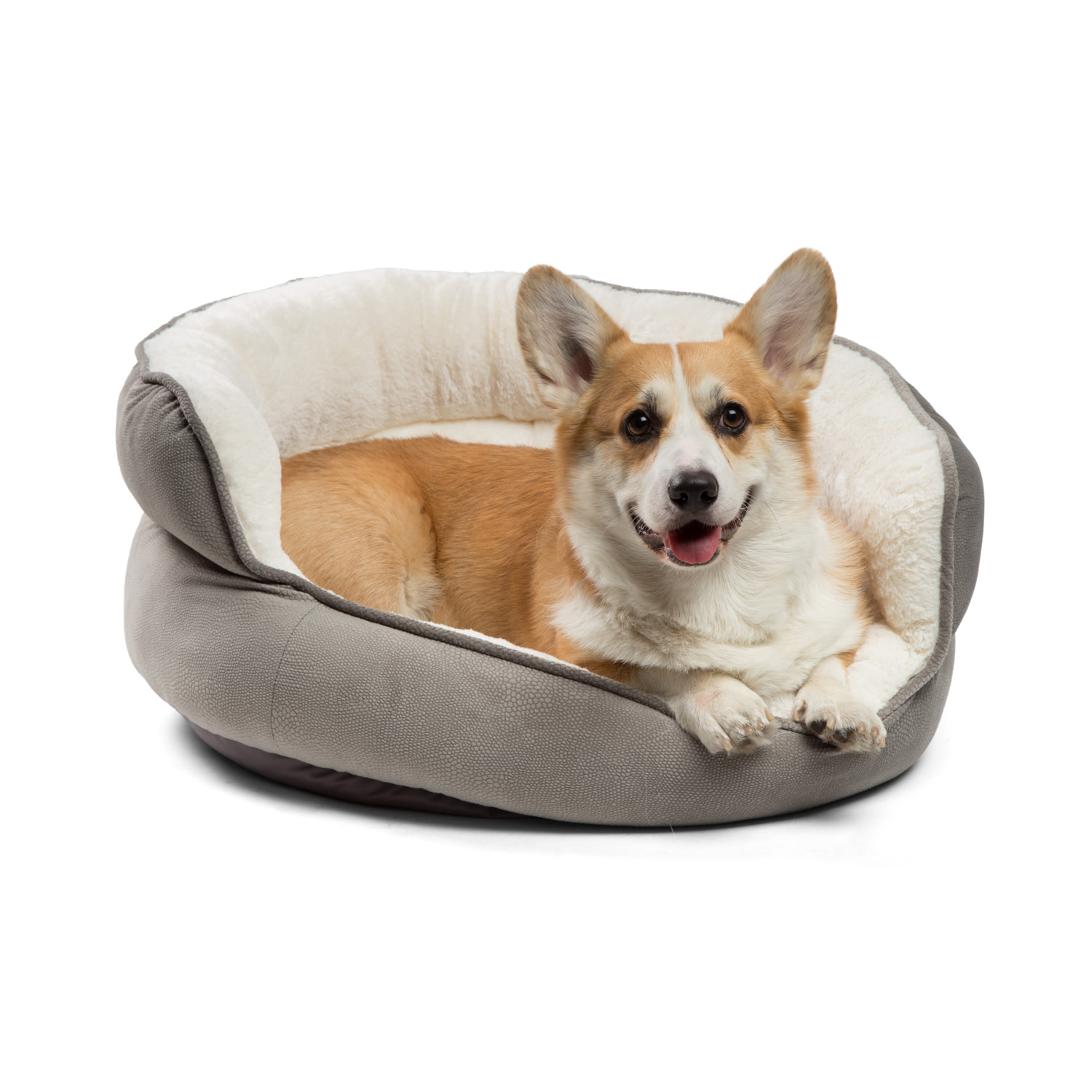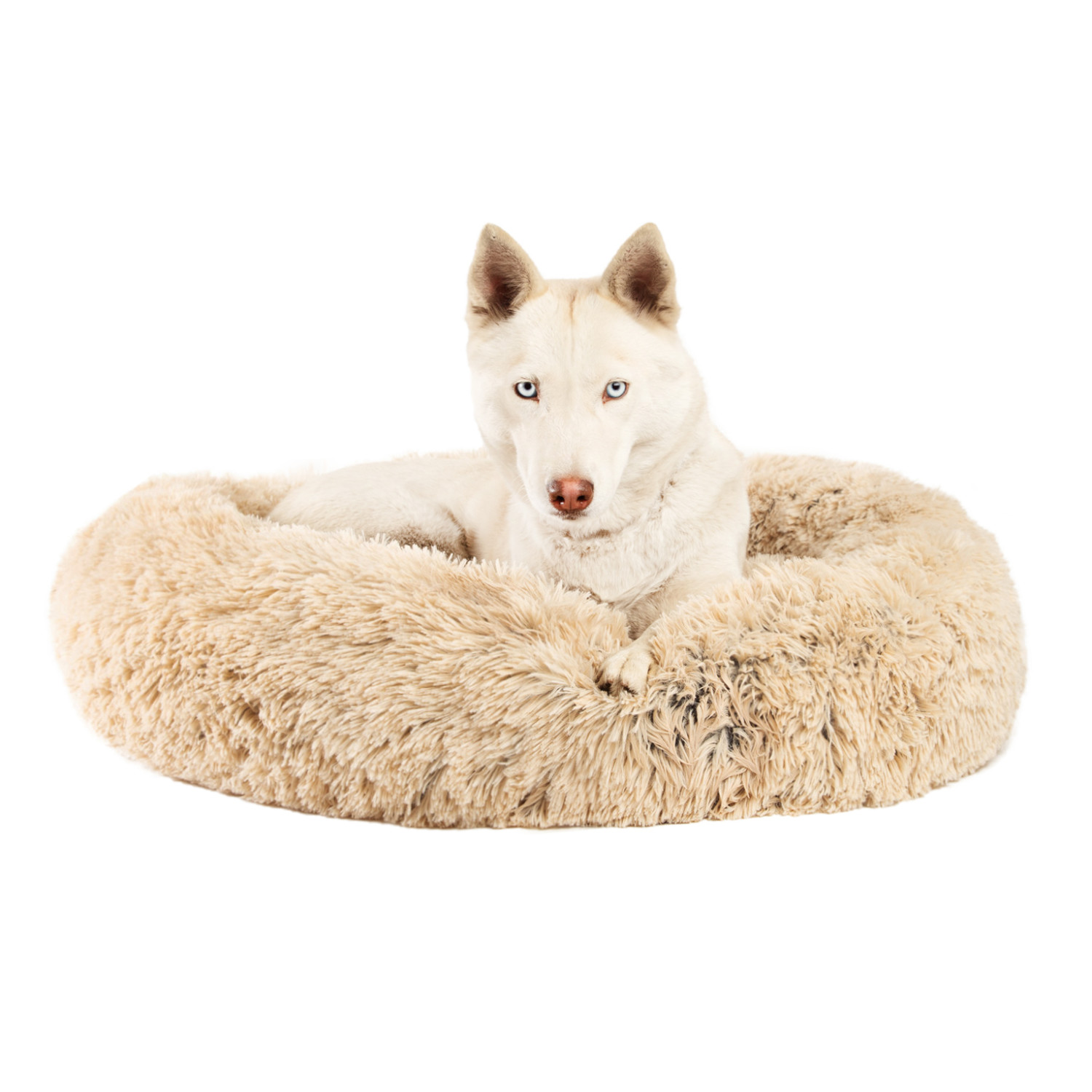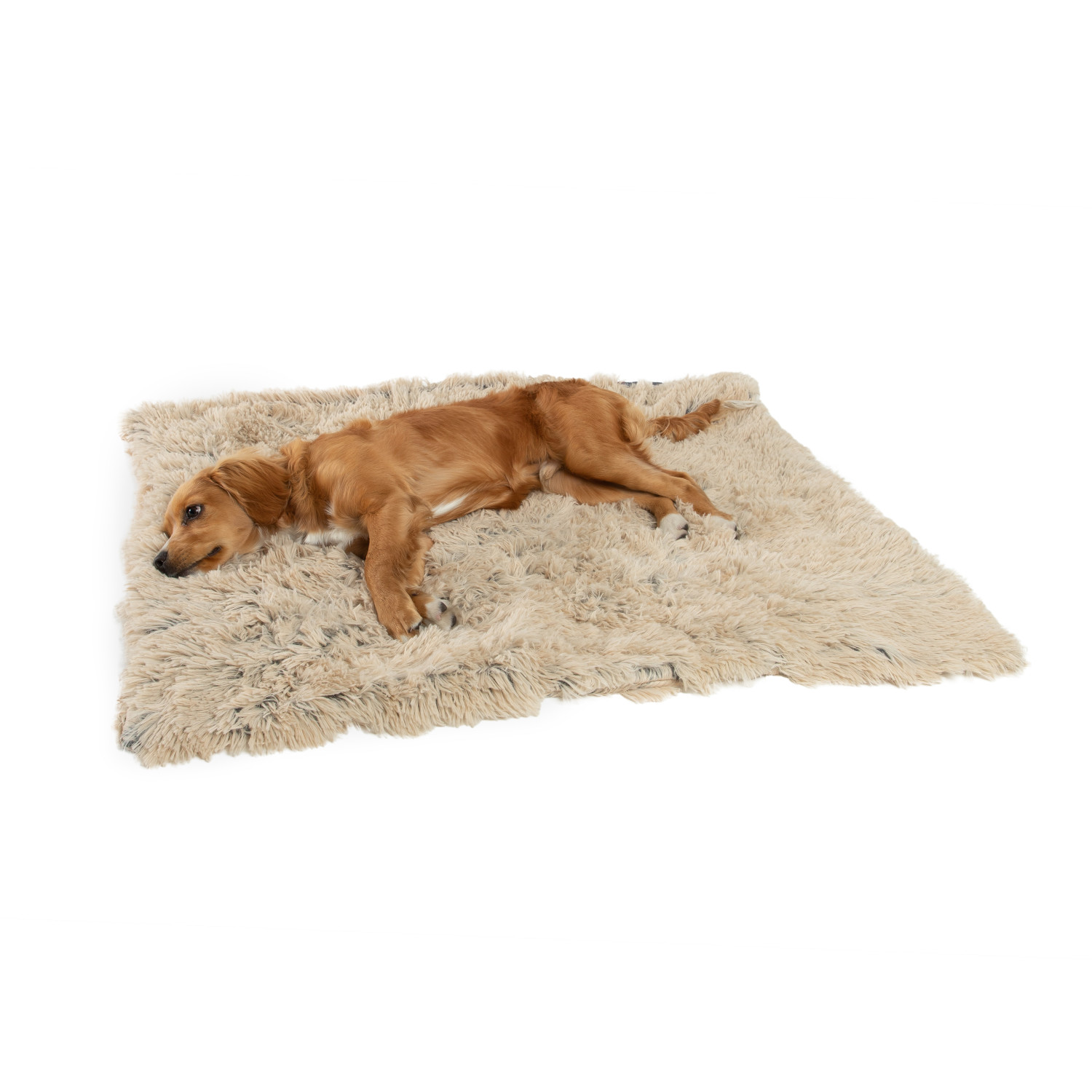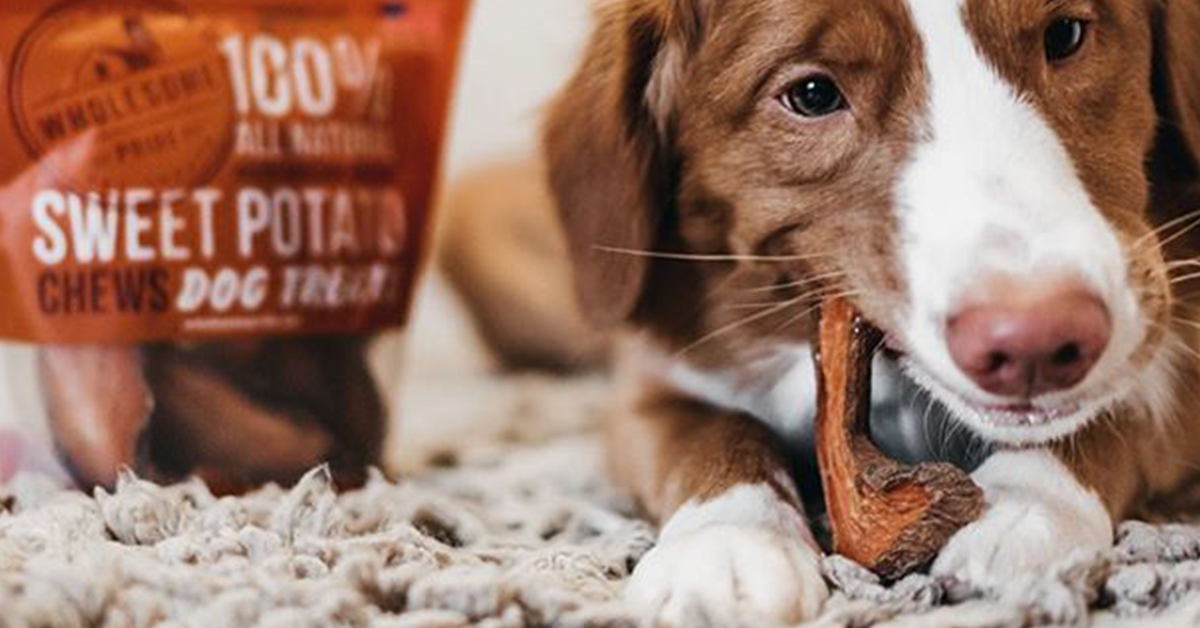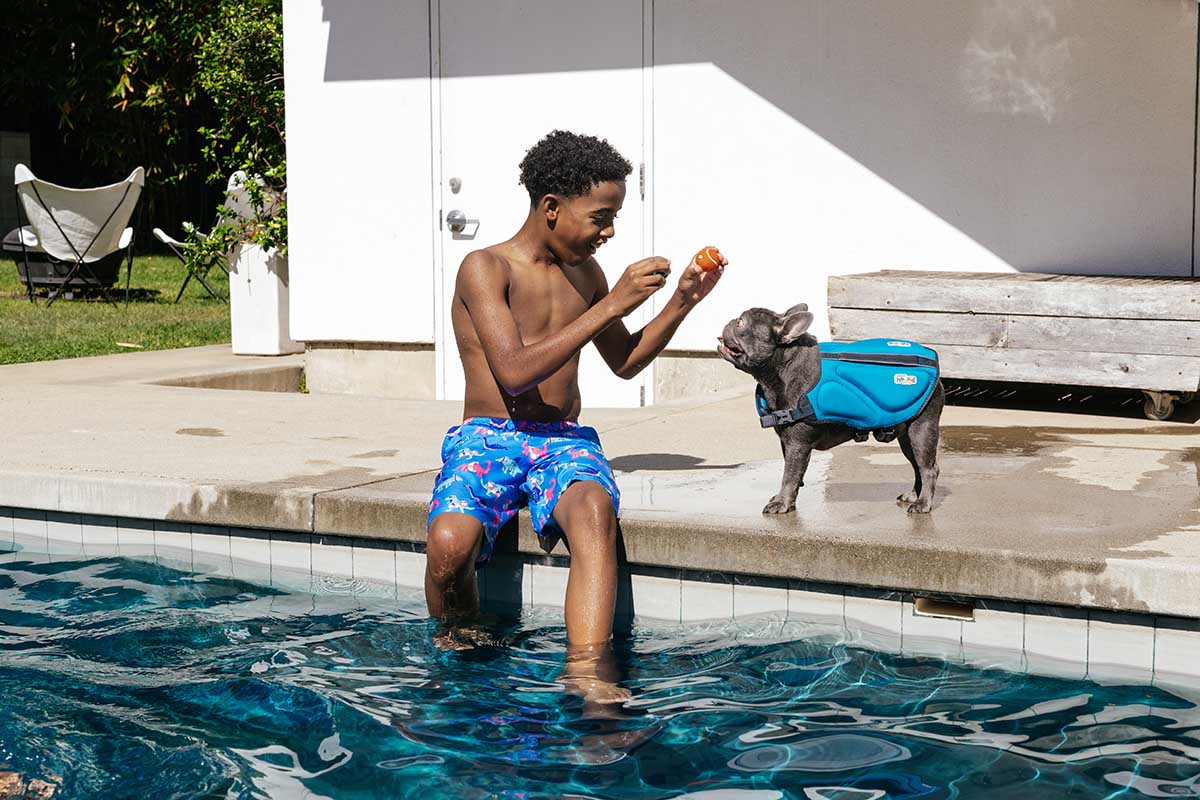Congratulations on your new puppy! They’re cute, snuggly, and melt your heart with those innocent eyes.
They also turn your life upside down those first weeks. Take the middle-of-the-night potty break routine. You set early morning alarms to let Nina out because you know young puppy bladders can’t make it all night. They need frequent bathroom breaks.
If it’s your first time with a new pup, you might wonder when you’ll regain your sleep schedule. At what point can you expect your puppy to sleep through the night?
It’s a good question. Read on to learn how to get a puppy to sleep through the night.
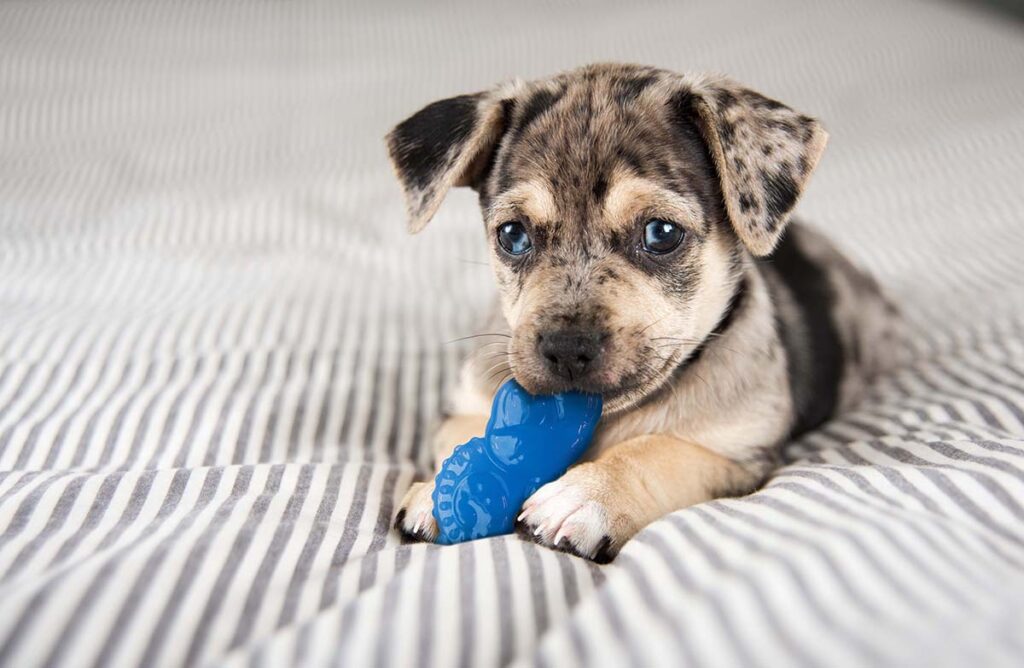
How can I get my puppy to sleep through the night?
A new puppy can definitely throw a wrinkle into getting a good night’s sleep. The adjustment period for your new puppy and your family takes a few weeks. Whether it’s their first night in their new home or the tenth, it takes some preparation. Here’s what you can expect.
1. Make Your Puppy Comfortable
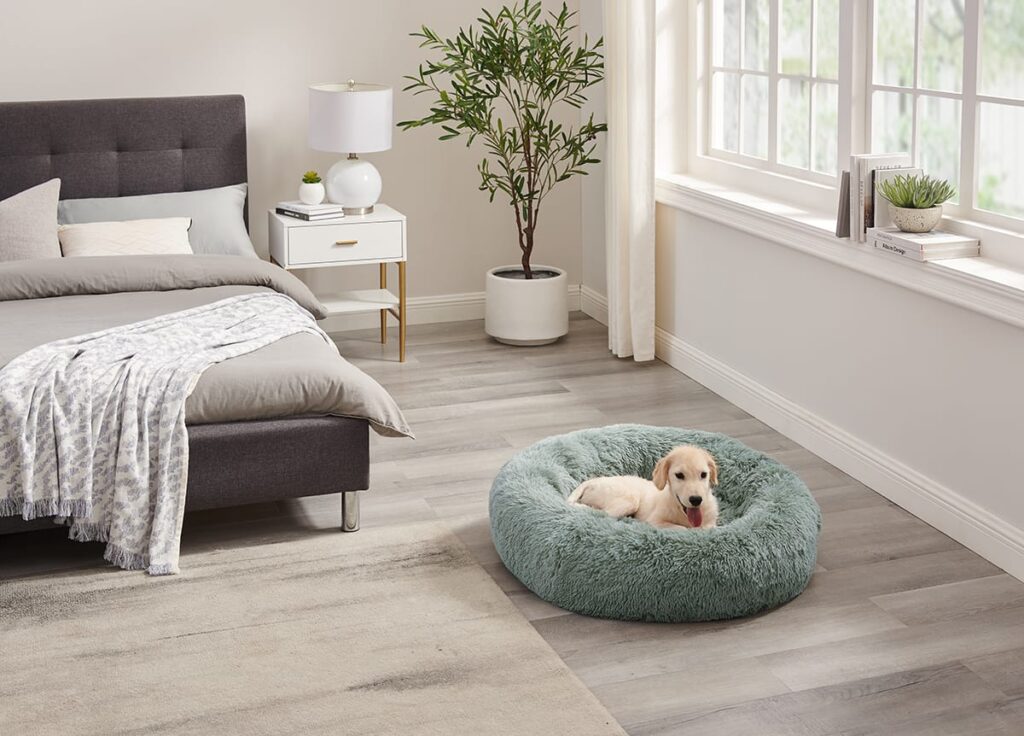
Mindy Waite, Ph.D., Certified Dog Behavior Consultant at SeniorTailWaggers.com, is an animal behaviorist and dog trainer. She says, “Let the puppy sleep in the room with you, preferably near you. It is common for dogs to cry if left in a separate room at night, and this is especially true for puppies who, up until recently, slept with their litter and mother.”
Imagine how upsetting it would feel to sleep alone if you’re used to sleeping as part of a “puppy pile” with your littermates. To help your puppy feel comfortable and safe, you’ll want a designated puppy sleep area, and this could be a cozy dog bed or puppy crate as a kennel.
As you may know, crate training is beneficial when it comes to house training, and many dogs come to love them and look at them as their cozy den space. You can put the dog crate in the room with you and line it with soft towels or other comfortable textures. You might even opt to include a towel or shirt that smells familiar, whether from their former home or yours.
2. Have a Bedtime Routine
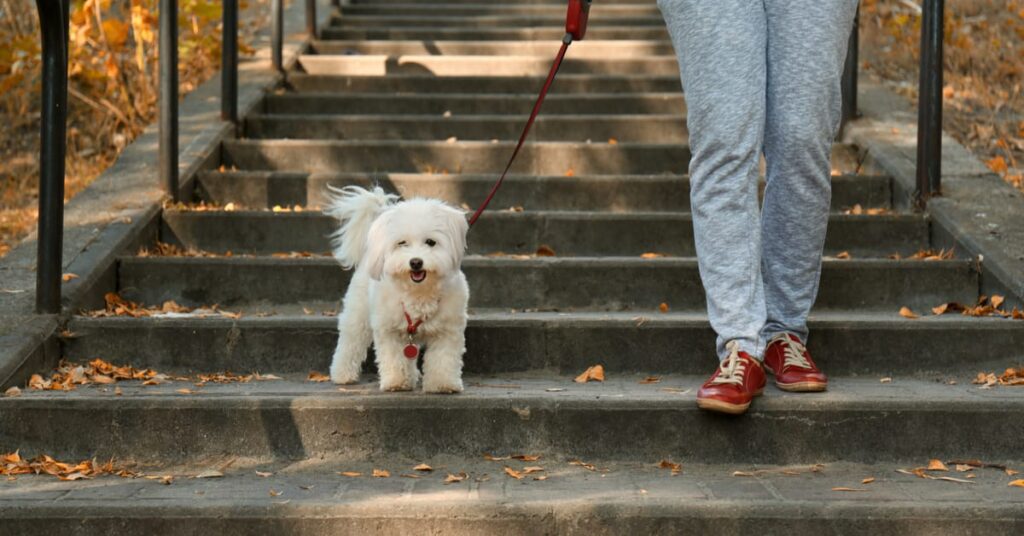
Dog owners don’t have to read bedtime stories to their new puppy (unless they want to), but they do find comfort in routines. So dim the lights, take them out for a bedtime potty break, and put them to bed around the same time every night.
If your puppy is very young, they’ll need a middle-of-the-night potty break to poop or pee. Depending on their age, a bathroom break once or twice a night may help your potty training—more on that in a minute.
However, you don’t want to set a precedent that “crying = going out,” or you may find yourself trying to break that habit later.
Everything you do is dog training so act accordingly. Dr. Waite reminds us,
Taking them outside after they start crying will reinforce crying behavior. Get ahead of this by setting the alarm to go off every few hours so you can take them outside often. This will help because you are taking them outside often and before they cry.
3. Get Plenty of Exercise and Playtime
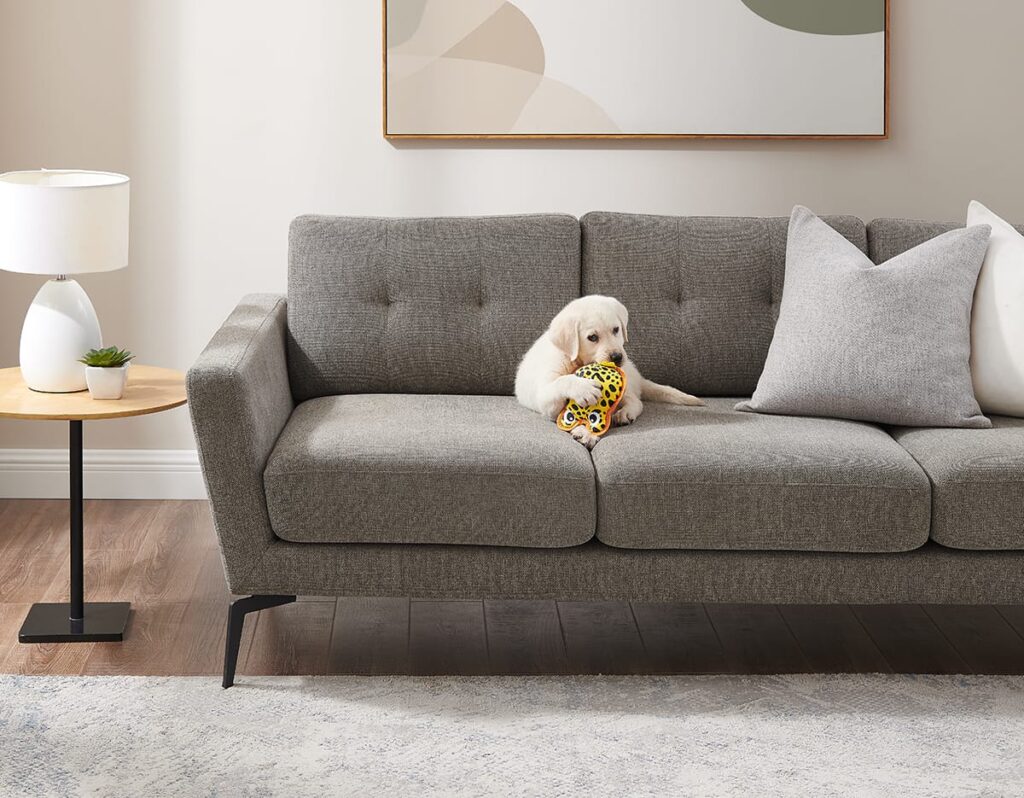
Just like you sleep better after a tough workout, your pup does too. Your young puppy needs plenty of exercise and playtime throughout the day. You can play tug-of-war with a favorite chew toy or toss a ball for your new puppy earlier in the evening. That way, they can enjoy their evening burst of energy and tire themselves out for bedtime.
Well-socialized puppies turn into happy older dogs. No matter their age, they require plenty of exercise and social interaction throughout the day. Regular walks, dog toys, and playtime help pups of all ages calm down and rest at night.
Don’t forget mental exercise! Put some puppy food in a puzzle for them to give their brains a workout.
Every breed has different exercise requirements based on age, size, and breed instinct. For example, a border collie will always need miles of running and jobs to do to be happy. On the other hand, a Shih Tzu is pretty content hanging out in your lap most of the time.
Ensure your dog’s routine includes adequate exercise and playtime for mental stimulation. It keeps your new pup from boredom which reduces the chance they’ll cry for attention, and reduces separation anxiety.
At what age do puppies start sleeping through the night?
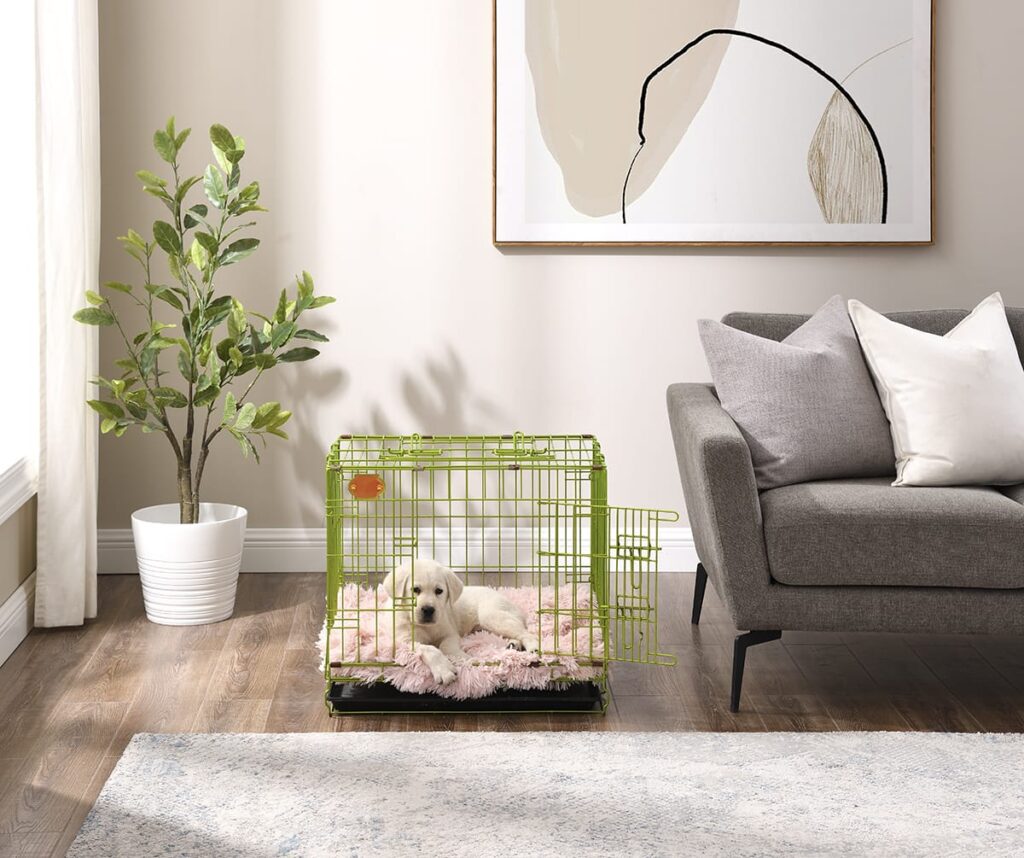
Part of sleeping through the night is biological. A small puppy’s bladder simply requires more frequent bathroom breaks.
A general rule of thumb for potty breaks is the puppy’s age. If a puppy is three months old or 12 weeks of age, they can learn to hold their bladder for about three hours and so on.
Part of house training is making sure you pre-empt any emergencies with regular potty breaks. Depending on your puppy’s age, you may be taking them out at 11 p.m., again around 1:30, again around 4:30, and so on. Fortunately, such middle-of-the-night runs will end as the puppy gets older.
You can also enlist the aid of other family members. My sister did this recently with her eldest.
After months of petitioning for a puppy, they welcomed a cuddling lab mix into the family. Her son got up once a night to take the puppy out of the dog crate and into the yard for the first couple of months until the puppy was on a potty and sleep schedule where she could sleep through the night.
If your children are old enough, it’s a good way to teach responsibility and house training all in one fell swoop.
Should I leave my puppy alone to cry at night?
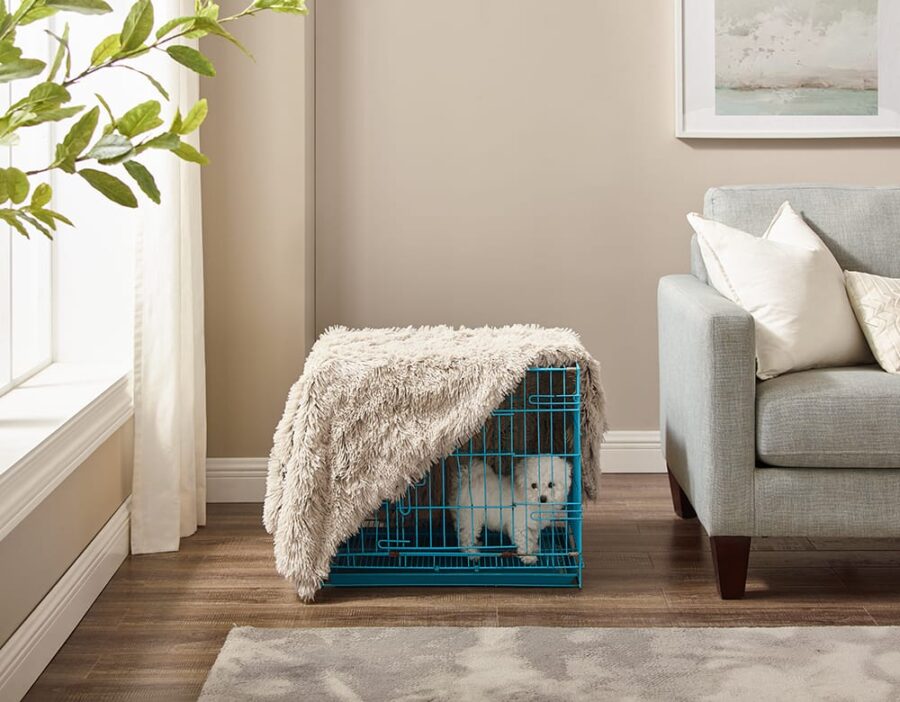
Dr. Waite says no, you should not leave your puppy alone to cry all night. “I would not recommend letting the puppy cry for long periods of time. Crying for long periods suggests the puppy’s needs are not being met and may require scrutiny of your daily routine to ensure the puppy is not hungry, thirsty, bored, or need to potty during the night.”
To alleviate your new dog’s anxiety, you’ll want to make sure your puppy has access to fresh water at all times, regular meals, and plenty of attention and socialization before bed.
She also says, “I always encourage data collection in owners. For example, if the owners want to check their daily routine and determine which variables have an impact on their puppy’s nighttime behavior. They could collect data on what the puppy did that evening (e.g., when the puppy ate, when it played last, when it last pottied, when it napped last, any abnormal things that happened that night, such as a thunderstorm) and then measure how long it takes for the puppy to cry after bedtime. This can help owners pinpoint the areas needing to be addressed.
Crying could also be a sign that the pup needs to see a veterinarian for medical issues or a change in diet.”
How to Get a Puppy to Sleep Through the Night
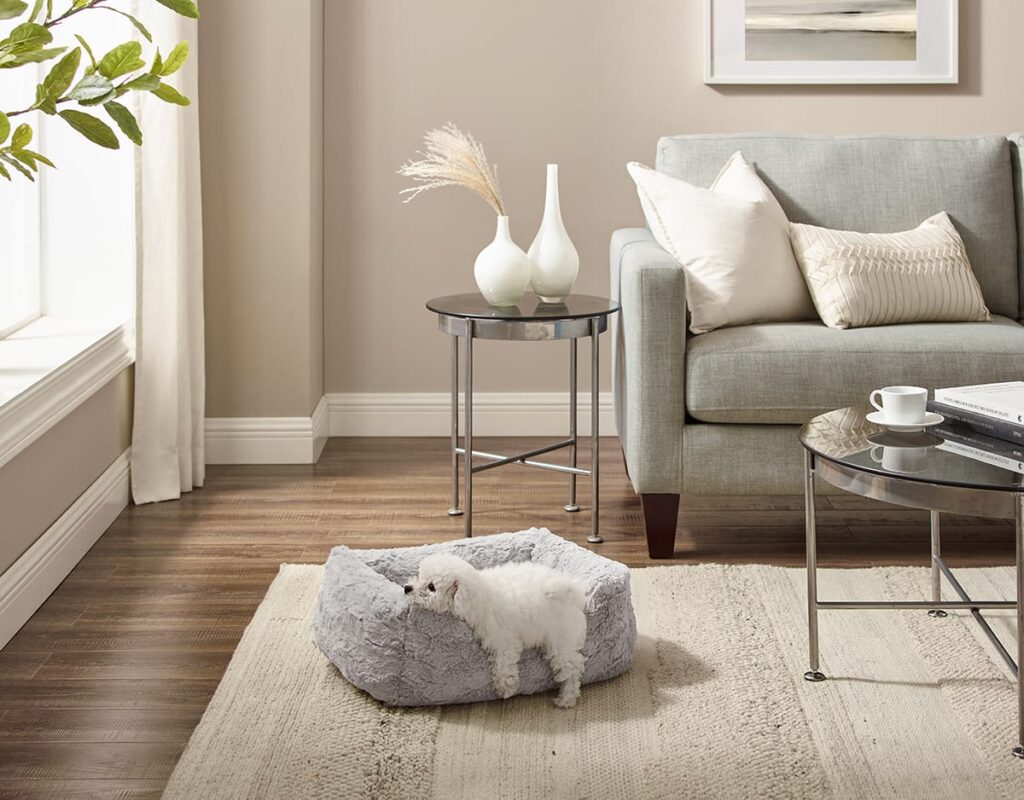
It’s rewarding to bring home a new pup. All that puppy energy will keep you on your toes those first weeks. You’ll need to make time for puppy training and establish new routines. Every new dog needs exercise and playtime for mental stimulation. Then they’ll be happy to snuggle up for naptime.
Dog training requires patience and consistency. Establish a bedtime routine, a sleeping area for your pup, and stick to a sleep schedule, and soon, you’ll get to enjoy hours of sleep yourself.
Puppy Sleeping Essentials
Ilan Throne Cat & Dog Bed, 27×26
$44.99
This bed is designed in shape of a throne and the entire bed is made with ultra-soft and luxurious micro plush fabric that is reminiscent of a mother’s fur and also serves to promote deep rest. The matching bottom is made with Tough nylon fabric that resists both dirt and water keeping your pet bed cleaner and limiting accidental messes from reaching your floor. You will appreciate that the entire product…
The Original Calming Donut Shag Cat & Dog Bed
$59.99 $30.00
Give your pet more than just a dog bed! Best Friend’s by Sheri is the original creator of the most popular dog bed that has surfaced the internet in recent years: The Calming Donut Dog Bed. This innovative cuddler shag design provides better sleep, supports joints, and offers a calming, self-warming effect. The donut cuddler is carefully crafted with durable, vegan nylon and filled with AirLoft fibers,…
Shag Pet Throw Blanket, 30×40
$19.99
This luxury shag blanket that’s perfect for your four legged pals. The ultra-soft vegan fur is designed to reminisce a mother’s fur coat aiding your pets in superior comfort and security. The light-weight allover shag provides just the right amount of warmth. An effortless way for your pets to cuddle up on the couch or on the go. This versatile blanket will also help protect your furniture car seats and…
